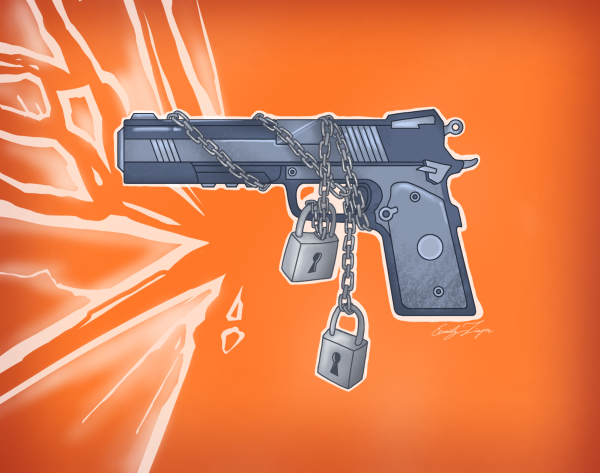A poor lesson in leadership
Mandated honors class has no depth
Students at College of DuPage make a lot of choices. We choose to come here; as the recent student satisfaction survey reveals, most of the people who attend this school selected it as one of their top choices. We choose what we wish to pursue; a student can choose to follow their passions, selecting a degree program that inspires us and revitalizes our drive to learn after the slog that is high school. And, for the most part, we choose our classes; students can select which classes they want to use to meet the criteria for their degree and have a large amount of freedom to do so. We can even choose to pursue a degree with honors distinction, if we desire.
We accept a limit to this freedom. Obviously if one wishes to get an associate of science degree, they have to take more STEM classes. If they want to get a nursing certificate, they have to take nursing classes. And, if they want to graduate with honors distinction, they have to take honors classes, and do well in them.
The last one is of particular interest. To achieve honors status is no simple feat. At COD, the minimum GPA to get “honors” on your degree is a 3.2 — nothing to scoff at. But that isn’t enough for the honors program. To graduate as an “honors scholar,” a student must complete 15 credit hours of honors classes. This is still reasonable. The next step is where it gets a bit extreme.
In order to graduate as an honors scholar, a student must meet all the above requirements, while also completing an honors seminar class or a leadership development class. This might not seem like an unreasonable request, until you start to unpack the actual content of this requirement. The seminars can be double-taught interdisciplinary classes, in which students get credit for both classes involved. The classes are usually interesting, like a combination film and biology class focusing on food running this semester, or a political science and physics combo running in the spring. These classes are generally taught by great teachers and are academically rigorous and challenging. They also might manifest as traditional, single-teacher classes, but generally with a more specific focus than normal course material. The shortfall of the seminar program is twofold. First, the specificity of these classes means that a student might not actually need them for his or her degree, or might not be remotely interested in the subject material. Secondly, and significantly more important, is the scarcity of these classes. There are very few classes offered each semester, and very few sections in each of those classes. A cap on class size also means that students are left out in the cold.
Problem exists. Possible solution: leadership development.
Except that the leadership development curriculum is, for lack of a better term, bad. It uses a Phi Theta Kappa textbook that summarizes various “Great Leaders” of history in manner and depth reminiscent of a fifth-grade book report, combining excerpts of their speeches with articles clipped from only the best of self-help books. Turn, for a moment, to the description of honors courses posted on the program’s home page. “Honors courses…are enhanced in terms of teaching approach and depth of course content. Classes in the Honors Program encourage interactive, cooperative learning and provide a challenging experience,” it reads. This class is lacking in depth. The leadership lessons contained within have a heavy slant towards corporate leadership, and the textbook often attempts to draw parallels between historic examples of leadership and the business world. The class isn’t in and of itself terrible; it merely falls short of its goal, to develop leadership in a classroom setting.
Based on one of our editor’s experience in the class, the academic depth was largely instigated by the instructor, often in spite of the curriculum. A class which, by its nature, hamstrings a great teacher in encouraging introspection and deep critical though is inherently flawed. And that’s the real meat of this problem. The class doesn’t feel like it was crafted by educators — rather, by administrators. It feels like a class-by-committee. A pet project of some out-of-touch administrator promising too much on a course description without understanding how it might actually play out in a classroom. Combine this, with the same problem of availability as the seminar class, and you can see the ridiculousness of this whole process. It’s a bad class, that you might have to take, that you might not be able to get in.
This specific class requirement on the “honors scholar” program is not a time-tested approach. It was added after a 2009 Presidential Commission to review the honors program, put forth by college President Robert Breuder. Among the recommendations adopted was a reduction in total honors hours, but the addition of the specific program requirements outlined above. The honors department does not craft its own policy. The administrative decision has, at the classroom level, negatively impacted students hoping for honors scholar status. The real tragedy is that there are likely many dedicated, bright students who did not receive honors scholar status due to these arbitrary requirements, simply because they could not fit these specific classes into their classes during their short time at COD. The college leadership needs to correct these mistakes before they keep deserved commendation from any more would-be honors scholars.








James Allen • Nov 24, 2014 at 2:15 pm
I read with interest your displeasure with the scarcity of honors seminars for honors students. As a faculty member who has taught several of these seminars in the past, I share your concerns. I must note, however, that this situation is partially one of the honors students’ own making–the unfortunate outcome of the law of supply and demand. Prior to the reorganization of the Honors program in 2009, we regularly ran 3 – 4 honors seminars on a variety of themes that most honors students found relevant and challenging (and also fulfilled both the credit hour requirements of the honors program and, most often, degree requirements). After the addition of the option of taking the Leadership class instead of a seminar in 2009, many honors students flocked to what appeared the path of less resistance (a trend that hasn’t abated). Subsequently, a dramatic decrease in demand resulted in the dramatic decrease in supply of which you now lament. Keep in mind, though, that the Honors program adjusts its curriculum in large part based on the interests and demands of the students it serves. If the honors students of 2014 – 2015 are truly interested in seeing more of these seminar learning communities offered, I assure you that there are numerous Honors faculty eager to offer them (I suspect many would gladly craft some grounded in student interest/need, as your first concern noted). For anyone wanting to learn more about the structure and benefit of learning communities at COD (whether Honors or not), please go to http://www.cod.edu/academics/resources/learning_communities/index.aspx.